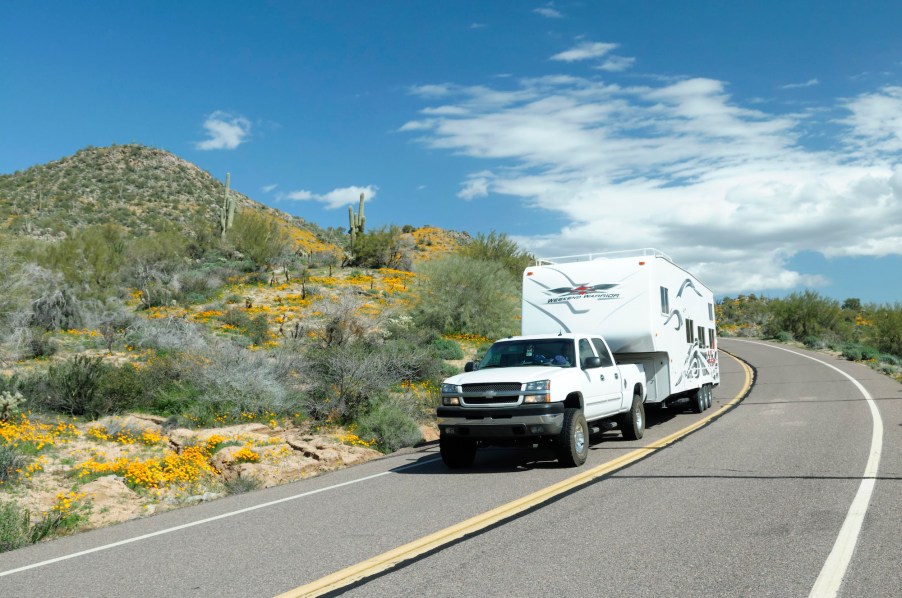
4 Tips to Remember When Hauling ATVs, Boats, and Campers
ATVs, boats, and campers are not light and easy to haul like a regular car. Driving with a large load behind you can be even more daunting, especially if it’s your first time. However, there are some things you need to keep in mind when towing these heavy objects. Here are four tips to remember when hauling ATVs, boats, and campers.
Tips to remember when hauling ATVs, boats, and campers

Outdoor adventures are a lot of fun. The scenery is typically breathtaking, and the feeling of spending time with nature is unmatched. You can also enjoy the fresh air and the company of friends or family. However, it can be a lot of work.
You have to engage in the tedious process of packing everything up, loading it onto your vehicle, and unloading it when you reach your destination. If you plan to bring your ATV, boat, or camper, you must prepare for the challenge of towing them. These four tips can help.
1. Verify the towing capacity
Towing capacity is perhaps the most important thing to consider when hauling ATVs, boats, or campers. Remember, just because your car has a hitch receiver, this does not mean it can tow any trailer. And hauling more weight than your vehicle is designed to handle can result in severe damage.
Therefore, you must ensure that your vehicle can actually handle the load you plan to haul. Check your owner’s manual or consult with a professional to find out the towing capacity of your car. Once you know this number, you can determine the maximum weight of the trailer and its contents.
2. Check the lights.
All vehicles typically come equipped with brake lights, turn signals, and tail lights. These lights become even more crucial when hauling a trailer as they alert and warn other drivers of the trailer. Towing a trailer without working turn signals and brake lights is extremely dangerous.
Therefore, always test all lights to ensure they work properly before heading out on the road. If the harness wiring of your trailer is connected correctly, it should activate the trailer lights once you hit the turn signals or brakes. Ensure you learn how to use the trailer brake controller in your truck or SUV. If the lights do not work, get them fixed before taking off.
3. Adapt your driving
When hauling a trailer, your vehicle will handle it differently than it typically would. The extra weight will affect how quickly your car accelerates, brakes, and turns. Therefore, you will require to make some changes to your typical driving style. You will have to take things slow and remain extra cautious when operating a vehicle with a large load.
Turning as you typically would in a corner may lead to hitting another vehicle or jumping a curb. Therefore, when at the corner, you will have to swing out wide. You might also have to brake sooner than you typically would since the stopping distance doubles when towing a trailer. Additionally, ensure you have the ideal SUV for towing.
4. Check your auto insurance coverage.
According to Erie Insurance, your auto insurance policy might generally cover your trailer liability, but you must use an insured vehicle for the towing. Therefore, if you plan on hauling ATVs, boats, or campers regularly, you might want to consider investing in additional coverage for your vehicle since your policy may not have enough coverage for your trailer and what it hauls.
Although hauling ATVs, Boats, or Campers may seem straightforward, you need to remember several tips to ensure a smooth and safe experience. Remember to check your vehicle’s towing capacity, test the lights, adapt your driving style, and check your insurance policy coverage. By following these four tips, you can avoid any stressful surprises while on the road.


